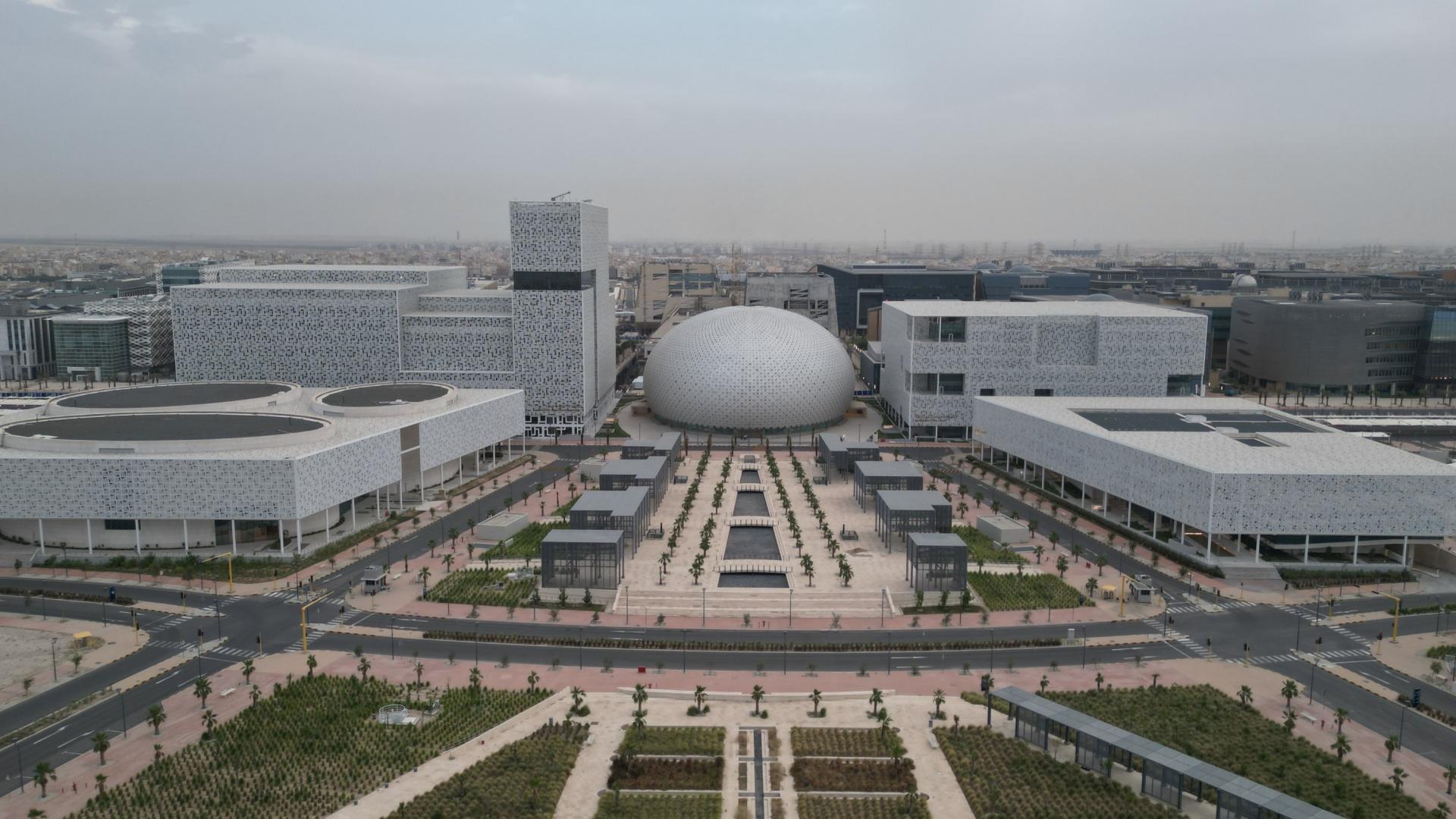
The University of Kuwait, during the design and implementation phase of the university city, aimed for the new campus in Sabah Al-Salem University City to be an exemplary educational, social, and developmental environment. It took initiatives to achieve sustainability standards, recognizing its responsibilities toward environmental protection, reducing energy consumption, preserving natural resources, and increasing reliance on renewable energy sources.
The design and implementation of the buildings in Sabah Al-Salem University City meet the requirements for Silver LEED (Leadership in Energy and Environmental Design) certification, reflecting a genuine commitment to environmental considerations, green architecture, and sustainable buildings.
In line with these standards, the campus buildings are equipped with a central cooling system based on water cooling, consisting of three central stations that provide cooling energy equivalent to 108,000 tons. This system is notable for its capability to conserve electrical energy.
Additionally, solar panels have been installed on the roofs of facilities and college buildings to harness solar energy, which is a clean and renewable energy source. Approximately 1,900 solar collectors are used, providing an annual energy yield of about 4 million watts per hour.
Great care has been taken to maximize the use of natural light in the design. The projects within Sabah Al-Salem University City incorporate features such as ceilings, domes, and glass walls to minimize electricity usage for lighting during the day.
The façades of the colleges and campus buildings are shaded using double façades that reduce the impact of direct sunlight. This architectural double-skin technique provides shading for interior spaces, thereby reducing cooling load and, consequently, energy consumption.
Moreover, Sabah Al-Salem University City implements a specialized waste management strategy, collecting, sorting, compressing, and transporting waste for recycling. Dedicated facilities have been established to separate plastic, paper, organic, and hazardous waste.
The green spaces and ornamental landscaping give Sabah Al-Salem University City an aesthetic appeal that aligns with sustainability standards and modern urban planning concepts in response to harsh climatic conditions. The central part of the campus has been designed as a large green area known as "The Oasis," alongside reception gardens in the northern and southern campuses and Kuwait Garden, which provide rest areas, pedestrian paths, and water features. The green areas are irrigated with treated wastewater.


 Colored
Colored Grayscale
Grayscale

